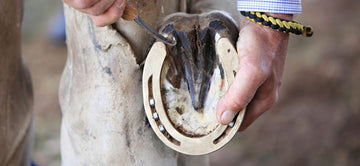Introduction to Caring for a Sick Dog
Caring for a sick dog at home requires attention, patience, and a clear understanding of your pet’s needs. Recognizing when your dog is feeling sick is crucial. When your dog appears unwell—whether it’s due to vomiting, diarrhea, lethargy, or loss of appetite—it’s important to act quickly and calmly.
Recognizing early signs, such as an upset stomach or unusual behavior, can help you determine whether your dog needs rest, dietary changes, or an immediate visit to the veterinarian.
Creating a quiet and comfortable space where your dog can rest undisturbed is essential for recovery. It is also important to separate the sick dog from other pets to prevent disturbances and potential spread of illness. Avoid giving your dog any human food, as it can worsen their condition.
In some cases, dogs may eat grass to ease stomach discomfort, which is common but still worth monitoring. Providing a bland diet, fresh water, and lots of affection can make a big difference in your pet’s healing process. However, monitoring your dog's symptoms to decide on the next steps is just as important as home remedies.

Identifying the Cause of a Dog’s Sickness
Before you can treat your dog at home, it’s important to understand what might be causing the illness. Common health problems in dogs include gastrointestinal issues like food intolerance, stomach ulcers, infections, urinary tract infections, and urinary tract issues.
Keep a close eye on your dog’s symptoms, including vomiting, diarrhea, drooling, or changes in behavior. If you notice blood in their stool, unusually dark urine, or persistent nausea, these could be signs of a more serious issue.
Track details such as when the symptoms began, whether they ate something unusual, and any changes in stool or urine. Monitoring your dog's condition closely is crucial, as it helps in identifying any abnormalities early. This information will be extremely helpful if you do need to consult with a veterinarian.
If your dog is still eating, drinking, and behaving mostly normally despite mild symptoms, supportive care at home may be sufficient. However, if symptoms persist or worsen after 24–48 hours, seek veterinary attention immediately.
Additionally, be aware of other symptoms that might indicate a more serious issue, such as lethargy or significant changes in behavior.
Assessing the Severity of a Dog’s Symptoms
Not all symptoms are created equal. Mild discomfort or a brief stomach upset may not require professional intervention, but certain warning signs do. Keep an eye out for the following red flags:
-
Persistent vomiting or diarrhea lasting more than 24 hours
-
Blood in vomit, stool, or urine
-
Seizures, collapse, or unresponsiveness
-
Extreme lethargy or difficulty standing
-
Swollen or distended abdomen
-
Trouble breathing or excessive coughing
-
Decreased appetite
Recognizing certain symptoms that may signal an emergency in dogs is crucial. While some signs can be monitored at home, others, like seizures or blood in urine, require immediate attention.
Even if your dog seems slightly off, such as being unusually tired or refusing food, it’s best to observe their behavior closely. Make note of their temperature, hydration levels (check for dry gums or skin elasticity), and frequency of urination or bowel movements.
If you’re unsure whether the condition is serious, call your veterinarian for guidance—they can help you determine whether a visit is needed or if home monitoring is appropriate. If symptoms worsen despite home care, it's crucial to seek veterinary attention.

Providing a Comfortable Environment
When your dog is sick, creating a comfortable environment is crucial for their recovery. Pet parents can make a significant difference by ensuring their furry friend has a quiet, cozy space to rest.
A soft dog bed or a warm blanket can provide the comfort your dog needs. Keeping the room at a comfortable temperature and minimizing noise levels can help reduce stress and promote relaxation.
It’s also important to be present and attentive to your dog’s needs. Monitor their condition closely and provide gentle reassurance. A calm, peaceful atmosphere can aid in your dog’s healing process, making them feel safe and cared for.
Remember, your presence and attention can be incredibly comforting to a sick dog, helping them feel more secure during their recovery.
Home Remedies for Mild Dog Illness
1. Bland Diet for Upset Stomachs
A bland diet, including plain boiled chicken, white rice, and small amounts of pumpkin (not pie filling), can help settle your dog’s stomach. If a bland diet is not effective, a veterinarian may recommend a prescription diet. Feed in small, frequent portions and reintroduce their regular diet slowly after 1–2 days of improvement.
2. Hydration is Key
Make sure your dog is drinking plenty of water. If they’re reluctant, try adding a bit of low-sodium chicken broth or offering ice chips. Dehydration is a major risk during bouts of vomiting or diarrhea.
3. Monitor Temperature and Behavior
Normal dog temperature ranges from 101°F to 102.5°F. A digital pet thermometer can help you monitor for fever or hypothermia. Also, keep track of changes in behavior, such as pacing, hiding, whining, or irritability.
4. Rest and Quiet Time
Give your dog a soft, quiet place to rest. Reduce activity, avoid walks until they recover, and limit stimulation. Dogs heal best in a calm, stress-free environment.
5. Over-the-Counter Support (With Vet Approval)
Certain products like electrolyte solutions or probiotics may help with mild stomach upset, but only use supplements or medications approved by your veterinarian. Severe cases of hot spots may require oral antibiotics if they do not improve within 24-48 hours. Never administer human medications unless specifically instructed.
Recognizing Emergency Situations
As a pet parent, it’s essential to recognize when your dog’s symptoms require immediate veterinary attention. If your dog is showing severe symptoms such as vomiting blood, persistent diarrhea, or difficulty breathing, you should seek a vet immediately. Other emergency situations include seizures, collapse, or severe itching, which could indicate an allergic reaction or skin infection.
If your dog’s condition worsens or they exhibit signs of distress, such as whining, panting, or restlessness, it’s crucial to seek medical attention right away. It’s always better to err on the side of caution when it comes to your furry family member’s health.
If you’re ever in doubt, a vet visit is the best course of action to ensure your dog receives the necessary care and attention. Your prompt response can make a significant difference in your pet’s health and recovery.

When to See a Veterinarian
Consulting a licensed veterinarian for professional help is crucial in ensuring your pet's health and well-being. Seek veterinary care if:
-
Your dog’s symptoms are not improving after 48 hours
-
They show signs of pain, distress, or confusion
-
There is blood in their vomit or feces
-
Your dog refuses food and water entirely
-
Symptoms come on suddenly or escalate quickly
A veterinary clinic can provide necessary treatments and products, such as electrolyte rehydration sachets, to help prevent dehydration in dogs.
If your regular vet is unavailable, consider contacting an emergency animal clinic or animal poison control if ingestion of toxins is suspected. Veterinary medicine plays a vital role in diagnosing and treating serious conditions, ensuring your pet receives the best possible care.
Preventing Future Illnesses
Diet and Nutrition
Feed your dog a high-quality diet tailored to their breed, age, and health needs. Choosing the right dog food is crucial for maintaining their health and preventing digestive issues. Avoid feeding table scraps, which can cause stomach issues and obesity.
Routine Vet Check-Ups
Annual exams and vaccinations are essential for catching potential problems early and preventing disease.
Parasite Control
Use year-round flea, tick, and heartworm preventatives. It is important to use specific dosages for small dogs to ensure safety and efficacy. Parasites are a common cause of illness in dogs and can lead to serious complications if untreated. Consulting a veterinarian for the appropriate dosing of parasite preventatives is crucial to ensure safe and effective treatment.
Clean Living Environment
Keep your dog’s bedding, bowls, and living area clean. Remove harmful substances and plants, and dog-proof your home to reduce the risk of accidental ingestion or injury.
Regular Exercise and Mental Stimulation
A healthy dog is an active dog. Regular walks and playtime help boost the immune system and promote a healthy digestive tract.
Frequently Asked Questions
How to make a sick dog feel better?
Keep your dog comfortable, hydrated, and well-rested. Offer a bland diet and monitor symptoms closely. Avoid stressful situations and limit activity while they recover. Treat your dog as a cherished furry family member, ensuring they receive the attentive care and love they need during their recovery.
What is the home remedy for a sick dog?
The most common remedy is a bland diet (boiled chicken and rice), ensuring hydration, and providing a calm environment. Feeding smaller, frequent meals can help ease digestive problems. Always check with your vet before trying remedies. It's important not to withhold food for extended periods, as it can be detrimental to the dog's health.
What to do with a sick dog you can't take care of?
Reach out to a trusted friend, family member, or local rescue organization for support. Veterinary offices and shelters may offer advice or temporary resources for sick dogs in need.
What is the best medicine for a sick dog?
There’s no one-size-fits-all medicine for sick dogs. Intravenous fluids may be necessary for treating dehydration caused by vomiting. Treatment depends on the condition. Avoid human medication and only give prescriptions or OTC treatments approved by your vet. Veterinarians may recommend a prescription diet for specific conditions.
Conclusion
Knowing how to treat a sick dog at home can be a vital skill for any pet owner. While many mild conditions can be managed with rest, a bland diet, and close monitoring, it’s essential to recognize when professional care is needed.
By staying informed and proactive, you can make the best decisions for your dog’s health and recovery. Always keep communication open with your vet, maintain a dog-safe home, and be ready to adapt to your pet’s needs as they arise.
With the right pet care, attention, and love, your dog will be on the road to recovery in no time.










